Subtraction skills Word Problems Worksheets for Ages 7-8
6 filtered results
-
From - To
Our "Subtraction Skills Word Problems Worksheets for Ages 7-8" are crafted to help young learners build a strong foundation in subtraction. These engaging and educational worksheets provide a variety of real-life word problems that challenge children's critical thinking and problem-solving skills. Perfect for both classroom and home use, they align with educational standards, ensuring your child stays ahead. Additionally, the colorful designs and age-appropriate content keep kids motivated and eager to practice. Invest in your child's mathematical journey today with these fantastic resources from Kids Academy and watch their confidence in subtraction soar.
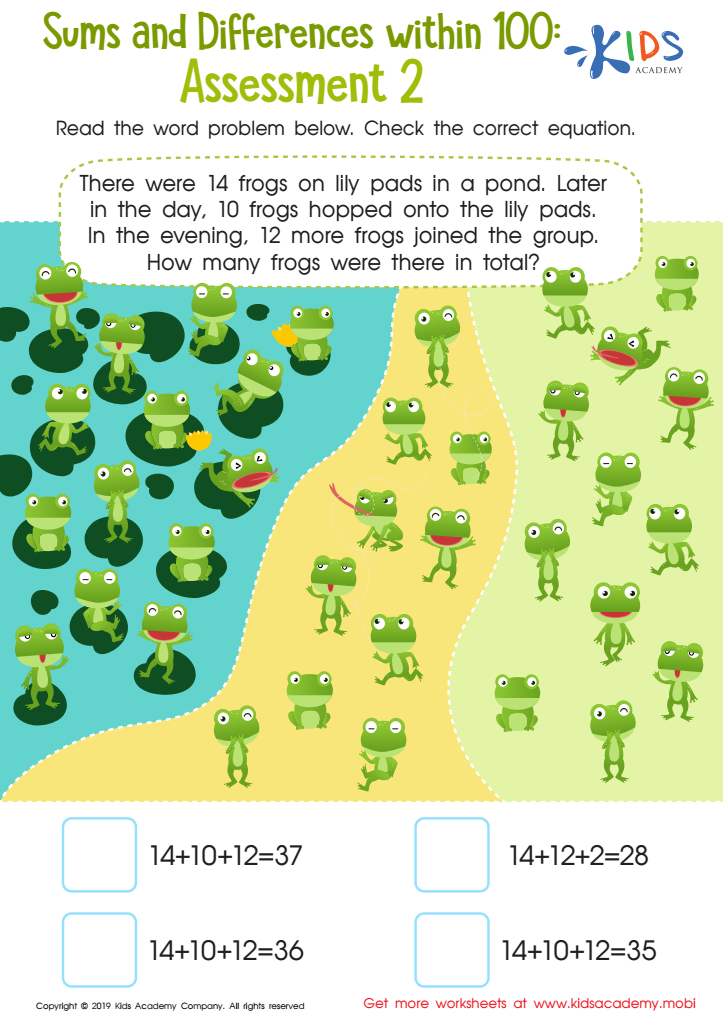

Sums and Differences Within 1 - Assessment 2 Worksheet
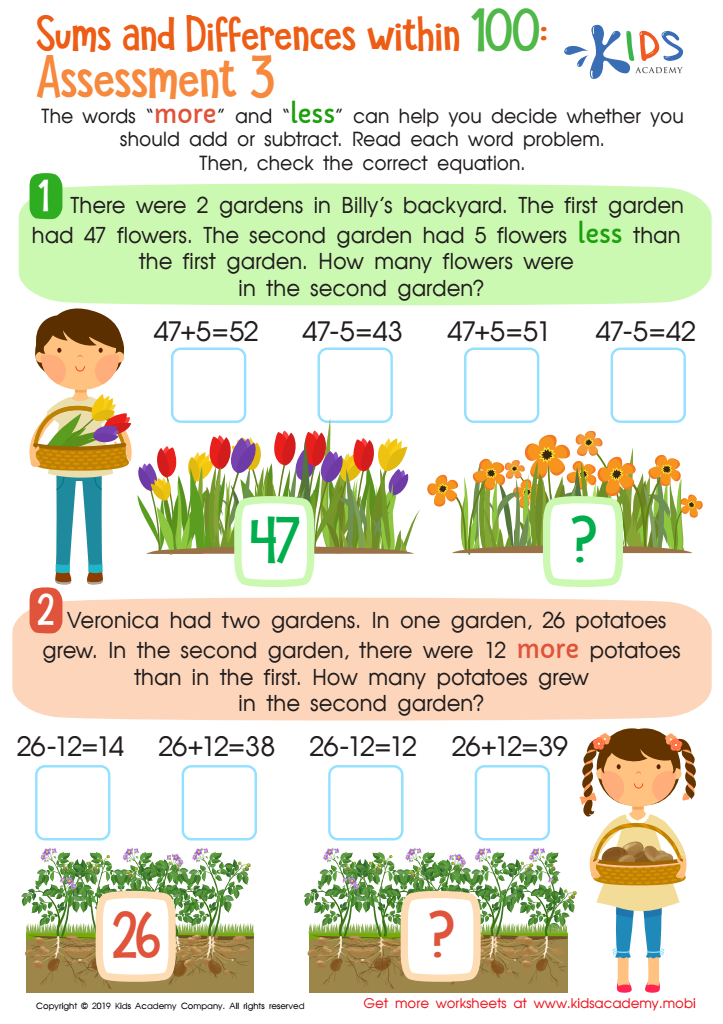

Sums and Differences Within 1 - Assessment 3 Worksheet
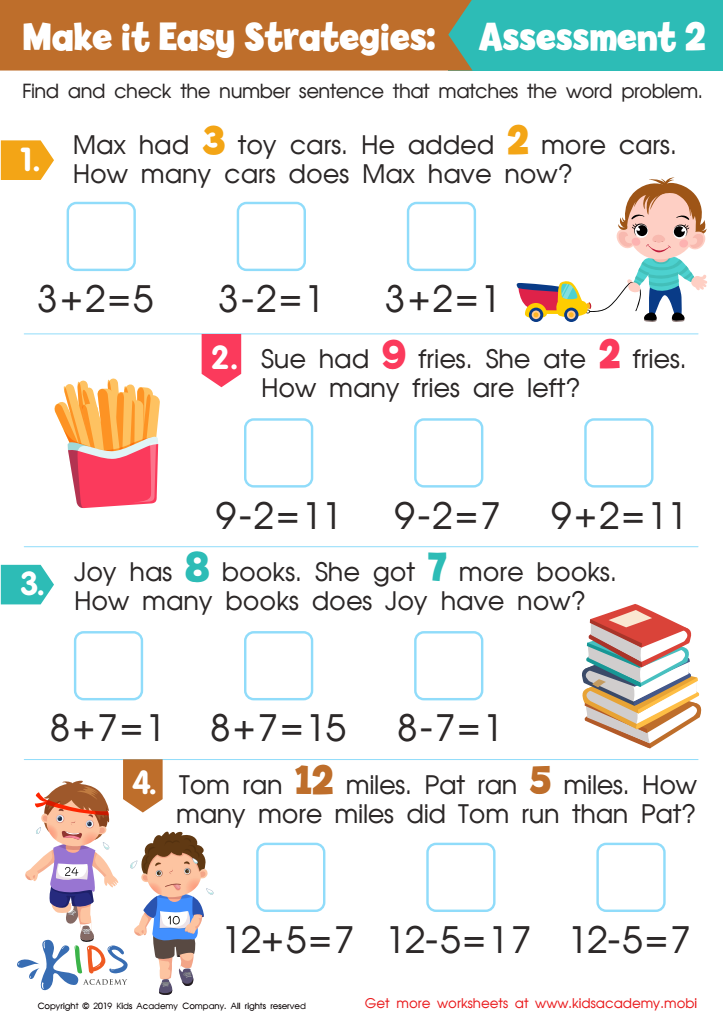

Make it Easy Strategies: Assessment 2 Worksheet
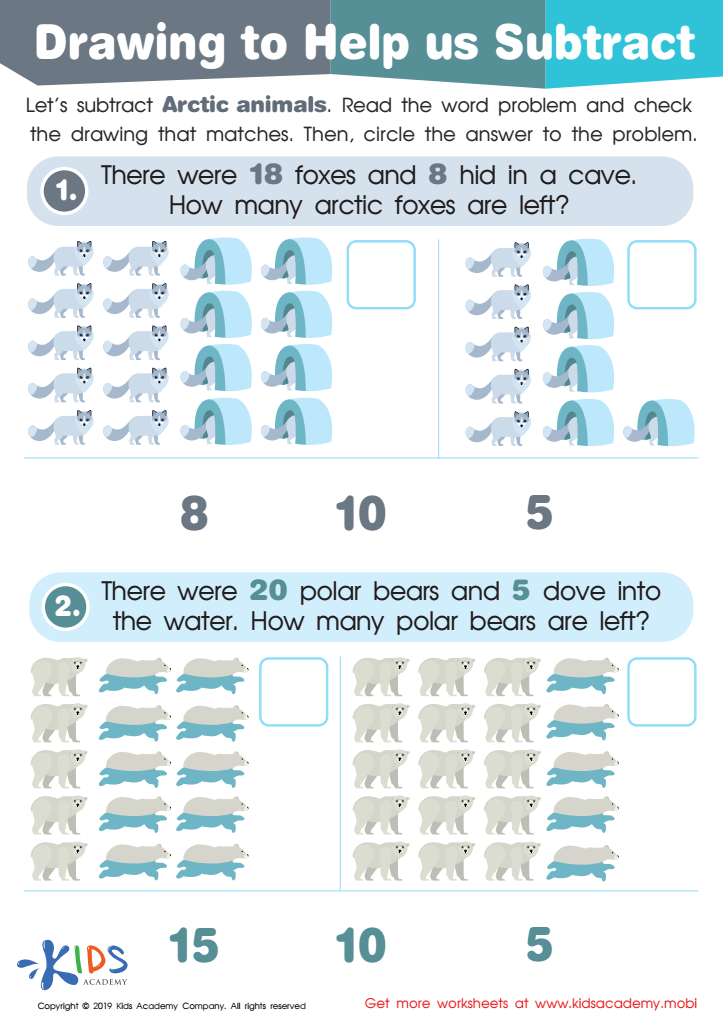

Drawing to Help Us Subtract Worksheet
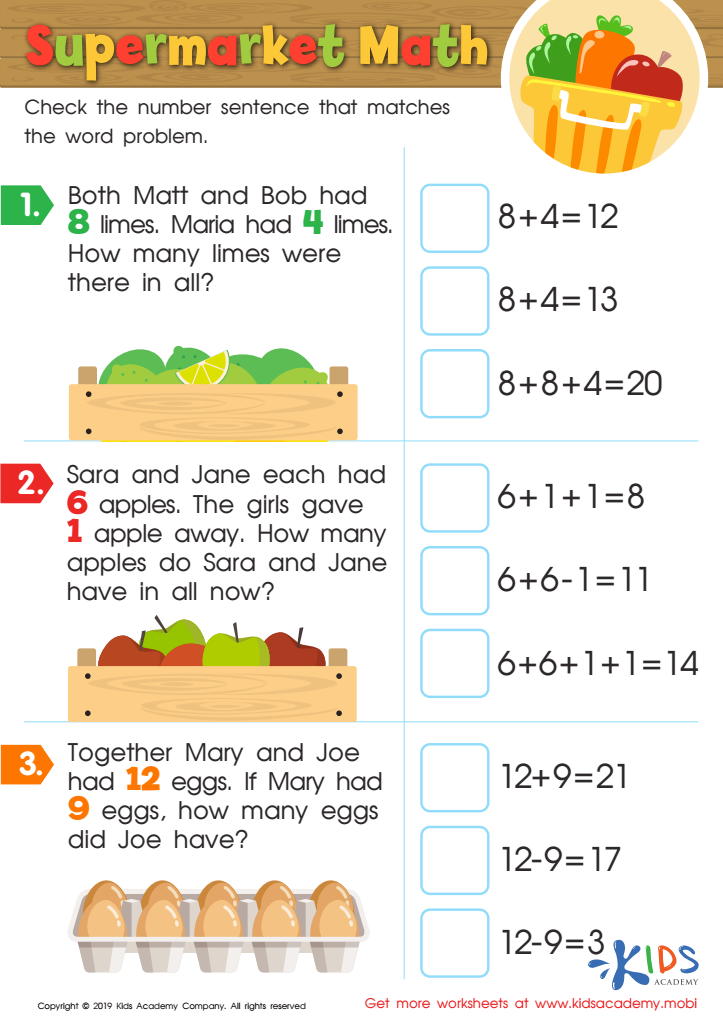

Supermarket Math Worksheet
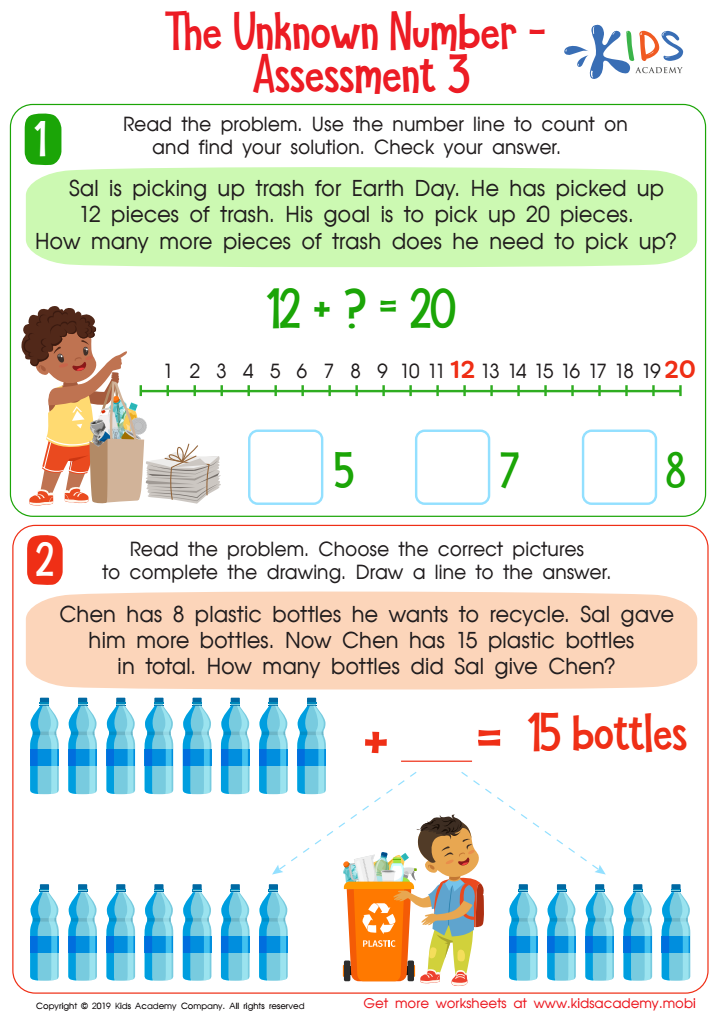

The Unknown Number - Assessment 3 Worksheet
Subtraction skills word problems are crucial for children ages 7-8 because they not only enhance a child's mathematical abilities but also foster critical thinking and problem-solving skills. At this stage, children are developing foundational math competencies essential for their future academic success. Word problems, in particular, encourage students to translate real-life situations into mathematical equations, reinforcing the practical application of their skills.
When children encounter subtraction within the context of a story or practical scenario, they learn to understand the significance of math in everyday life. This comprehension boosts their confidence in handling various mathematical challenges, not just isolated arithmetic calculations. Additionally, solving word problems requires children to read carefully, understand the narrative, and identify key information while discarding irrelevant details. This process enhances their reading comprehension and analytical skills simultaneously.
Moreover, these activities can help identify early struggles with subtraction concepts, allowing parents and teachers to offer timely support. Early intervention can prevent the development of math anxiety and build a solid foundation for more complex math skills. In summary, subtraction word problems bridge abstract numbers and tangible examples, nurturing well-rounded cognitive abilities in young learners and preparing them for future coursework and real-life problem-solving.
 Assign to My Students
Assign to My Students




















